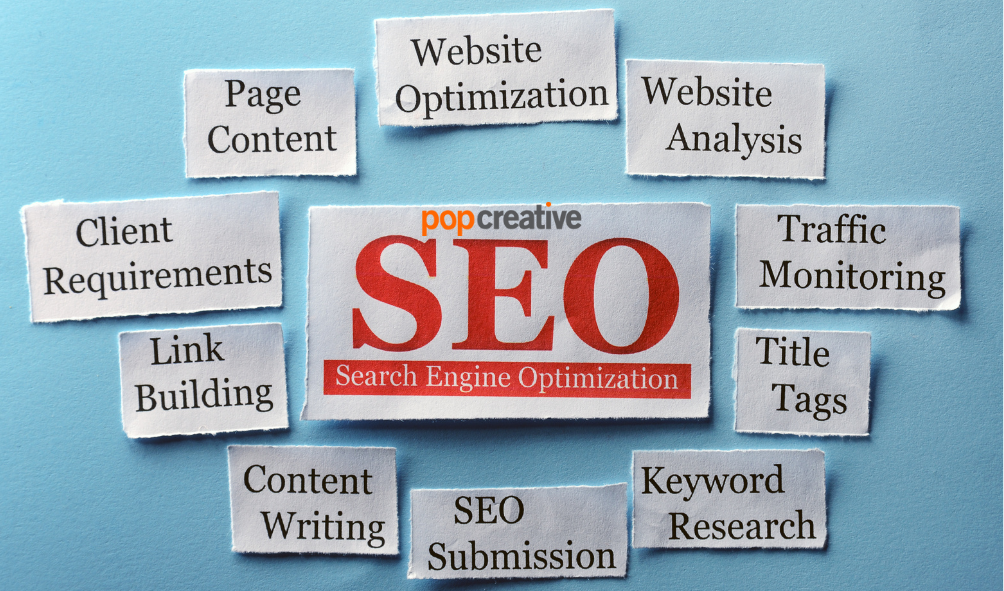If you’ve looked into online marketing for your business, there’s no doubt you’ve heard about the benefits of blogging for business. Content marketing has become a more popular form of marketing for small and large companies alike. The purpose of content is to serve as part of the company’s lead funnel in an inbound marketing strategy. The basic principle is that the content should draw in leads, whereas other marketing elements, such as CTAs and email lists, serve to convert new leads into customers. But is content marketing worth it? Will your business really be able to increase sales with content, or should you be spending your marketing budget elsewhere?
Why Businesses Choose Content
A lot of businesses have found that traditional advertising avenues are producing poorer results in the current marketing landscape. In an age where traditional advertising is becoming less popular, businesses are turning to marketing choices that are more interactive and transparent.
The idea of content marketing is that it will help improve your brand’s public image by providing value to your prospects. This value is usually in the form of informative or entertaining blog posts and e-books.
I reality, however, content marketing can be either a great investment or a complete waste of time. There are various things that you’ll need to consider before investing in content marketing. Yes, a content strategy can deliver excellent ROI, but if it’s not implemented correctly, you might just be wasting valuable resources.
Benefits of Content Marketing
It’s good to know the potential benefits of content marketing before looking at how to implement a content marketing strategy.
One of the biggest advantages of content marketing is that is can be reasonably affordable. When compared to other advertising mediums, content marketing delivers better long-term results. That’s because a piece of content will stay on your blog or website long after it’s first published and can continue offering value.
Conversely, traditional ad campaigns stop offering value the moment the campaign ends, as your message is no longer being carried out to the public.
Content is one of the best ways to attract new traffic to your business website. Content can be shared across your social media platforms and shared in your email newsletters to help your attract traffic from various sources.
Some Content Will Perform Better
Although content does offer better long-term value than traditional ads, what many people fail to realize is that content only offers value if it ranks high in search. If your content isn’t displaying on the first page of search engine results for your chosen keywords, you might not get any traffic from it at all.
According to research by HubSpot, only 1 in 10 blog posts attract more search engine traffic as time goes by. The other 9 might attract less search engine traffic over time, or never attract a notable amount of traffic at all.
Larry Kim from Wordstream has a concept he calls “marketing unicorns”. He noted that 1-3% of online marketing efforts yield 70% of results. The highly successful 1-3% is what Larry has decided to call marketing unicorns.
When looking at HubSpot and Larry Kim’s observations, it’s clear that a lot of the resources you put into content won’t deliver as much as you’d hope. But content pieces that do deliver, should make up for lost ground.
That said, both these observations come from well-respected marketers who know how to implement an effective content marketing strategy. If your content marketing strategy isn’t effective, you may not get any results whatsoever.
Using Content for Lead Generation
Another issue with content marketing is the issue of lead generation. Content often helps build your business’ online reputation. It serves as a great way to help businesses interact with their audience and gain exposure.
But there’s no use in consistently offering valuable content to your audience if you aren’t getting a return on your investment. In other words, your content marketing strategy might cost more than it’s really worth if you don’t integrate it into your lead funnel.
There’s no use investing more in your content marketing strategy than you’re getting out of it. Your business needs more than an enhanced brand online, you want that brand awareness to directly lead to more business opportunities.
Creating Content that Converts
When it comes to creating content that converts, your goal should be to have your content serve as an entry point into your lead funnel. For starters, this would mean that you need a lead funnel to start with.
Too many businesses invest in content that doesn’t make up any part of their lead generation funnel. If this is you, you’ll get little or no leads and sales from your content, even if it’s attracting thousands of visitors to your website.
Your content should serve to win over the trust of your prospective customers. Once people trust and know your brand, there should be a plan in place to help you win new customers.
The best way to do this is by collecting email addresses and building an email list. If your content can help you build an email list, you’ll have a dedicated audience of returning visitors to your website. You can send out emails to notify your email subscribers of discounts on your products or services to encourage sales.
It’s not to say this is the only way you can attract sales from your content strategy, but you should have a similar plan in place to reap the rewords.
When Isn’t Content Effective for Marketing?
Although content marketing can be highly effective, it might not be suitable for all businesses. This is an important thing to take note of. Too many business owners are led to believe content can work for any industry, but that’s simply not true.
The most valuable thing you can hope to gain from your content marketing is organic website traffic. Organic website traffic is any traffic that comes directly from search engines.
To get traffic from search engines, your blog posts have to rank in the top pages of search engine results for popular keywords.
Here’s the problem – most businesses can find ways to create content that targets popular searches, but not all.
If you work in a highly specialized industry and you’re unable to focus your content around popular search queries, you won’t get results.
The good news is that it’s possible to come up with some great content ideas even for specialized businesses, the bad news is that there might be an odd few businesses that just can’t make content work.
When coming up with content ideas, it’s crucial that the search queries you target have the potential to attract potential customers. However, some businesses have a customer pool that’s so small or so specialized, attracting relevant traffic would be incredibly challenging. There are some great ways to work around such challenges in most industries, but there’s a point where the rewards can start to outweigh the investment, in which case it’s no longer worth it.
Conclusion: Is Content Marketing Worth It?
So, is content marketing worth it, or will you be wasting your marketing budget?
The answer is that content marketing can definitely be worth it, but only if you have a solid plan to attract customers from your content.
The important thing about implementing content marketing for your business is to monitor your results. If your content isn’t attracting any traffic, you need to rethink your strategy. While it can take time for your content to start delivering results, you don’t want to endlessly invest in content. If you still aren’t getting results, even thousands of dollars spent and years of trying, you’ll either need to adapt your strategy or abandon content marketing altogether.
However, most businesses can benefit from a good content strategy, so adapting your strategy might be all that’s needed.






Recent Comments